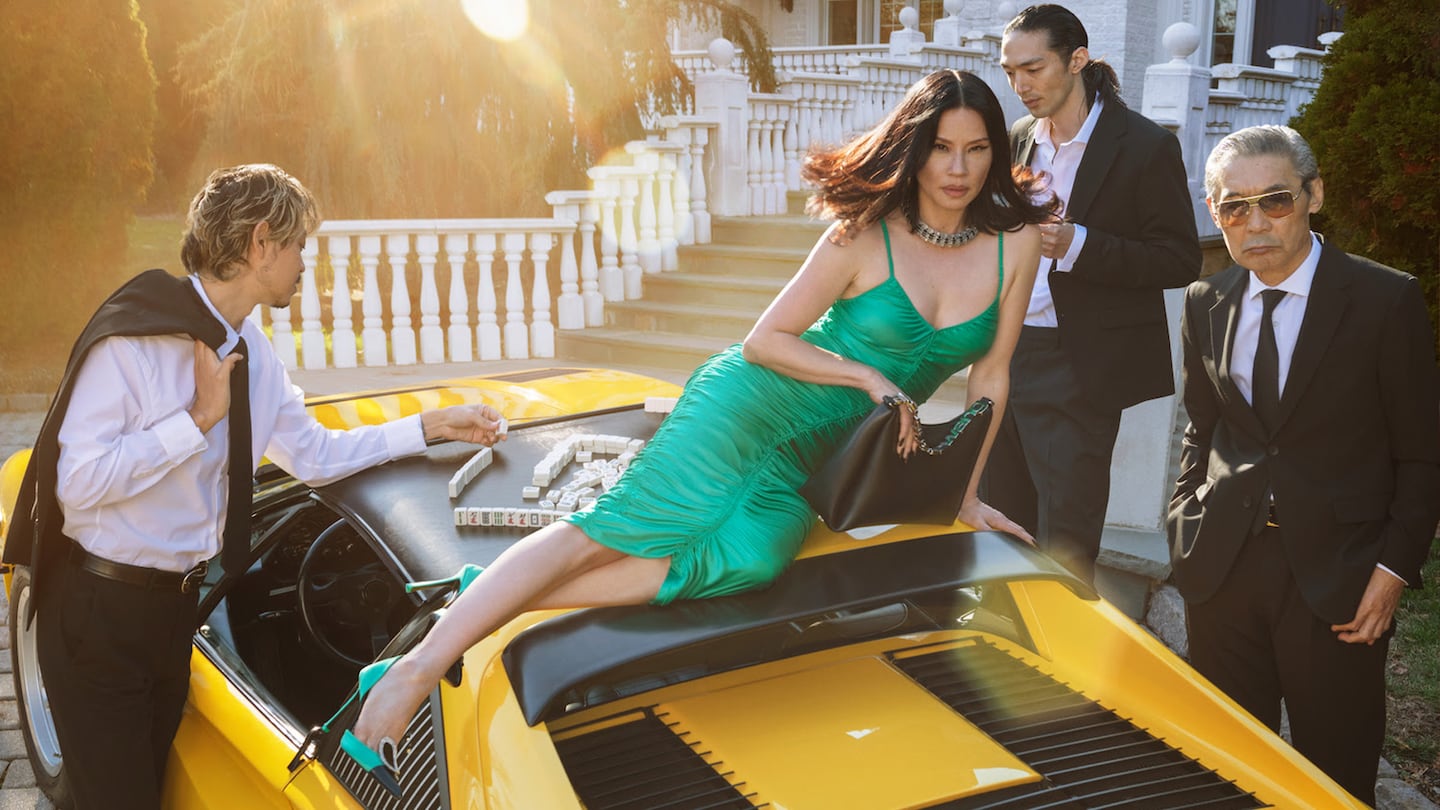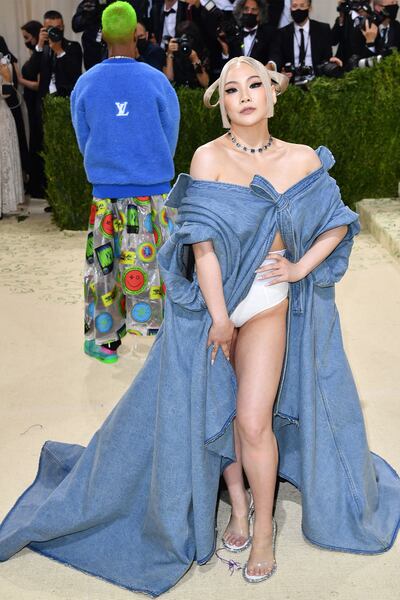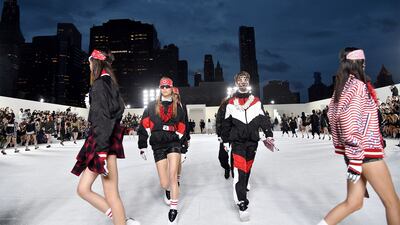
The Business of Fashion
Agenda-setting intelligence, analysis and advice for the global fashion community.

Agenda-setting intelligence, analysis and advice for the global fashion community.

LOS ANGELES — It seemed to start in mid-March, with Rihanna in a custom black leather jacket, matching leather shorts and a crystalised bikini top, framing her pregnant belly. The designer? Alexander Wang.
Days later, Julia Fox, still basking in a media glow just after her split with Kanye West, wore pair of slouchy denim boots tucked into self-customised jeans. “Never taking these boots off @alexanderwang,” she posted to Instagram.
A few years ago, a celebrity wearing Alexander Wang might have earned a spot on Just Jared’s grid, or a dedicated street style post on Vogue.com. But after the designer faced sexual assault allegations in December 2019, his standing in the fashion industry changed.
Instead of publishing yet another ode to Rihanna’s unmatched maternity style, Highsnobiety writer Alexandra Pauly admonished the singer’s decision to wear Wang’s clothes.
ADVERTISEMENT
“I love Rihanna, but not her Alexander Wang maternity outfit,” Pauly wrote. “Neither Rihanna nor [stylist Jahleel] Weaver are responsible for Wang’s alleged abuse of power, but selecting him, out of all the designers Rih has access to, holds complicated implications.”
While Rihanna’s outfit marked a turning point for Wang — they also happen to share a publicist — the designer’s re-emergence, after several months of laying low, actually began last autumn.
After dressing South Korean singer-songwriter CL for the September 2021 Met Gala, Wang released a major advertising campaign in November, featuring the Chinese-American actress Lucy Liu as “an Asian woman who exemplifies power and excellence” leading “an extravagantly mundane day-in-the-life,” according to a statement released by the label.

The campaign — which depicts Liu wearing a ruched green satin dress while lounging on a yellow Ferrari outside a McMansion; a belted leather suit while standing on a red-velvet carpet while watching over a diaper-clad infant; and an egg-shell white gown while draped on a chaise lounge, talking on the phone — was produced primarily by creatives of Asian descent, including photographer Heji Shin, as well as nail artist Mei Kawajiri and makeup artist Yumi Lee, with whom Wang has worked for several years.
In recent months, Wang has publicly delved deeper into his Chinese heritage. He has also put greater emphasis on his business in China, which grew amid the sexual assault scandal. Now, he is rebounding in the US and set to stage a “multi-layered event and runway show celebrating Asian American culture, food and music” in Los Angeles’ Chinatown on April 19.
In early 2020, it seemed the designer might disappear from fashion’s collective consciousness forever as he faced mounting sexual assault allegations. Some of his accusers went on the record, like the model Owen Mooney, who said Wang groped his crotch in a New York nightclub. Others made statements anonymously.
But even before the allegations, Wang’s brand was waning. After years of doubling down on his party-boy image — marketing the collection as much as hangover attire as club gear — his look was losing currency as the rise of luxe streetwear labels like Virgil Abloh’s Off-White reshaped the market. Industry insiders wondered if the slowing momentum, combined with the seriousness of the allegations, would damage the company irrevocably.
And yet, just a few months after allegations surfaced, Wang was able to diffuse the issue, making a public apology and meeting with his accusers, some of whom said they simply wanted to be recognised.
ADVERTISEMENT
“I am hoping that he acknowledges his actions,” one accuser told BoF at the time. “I’d like an apology, and I’m not looking for anything more than that.”
Wang’s response directly addressed this request.
“It was not easy for them to share their stories, and I regret acting in a way that caused them pain,” Wang posted on Instagram on March 8, 2021. “While we disagree on some of the details of these personal interactions, I will set a better example.”
After that, the accusers, represented by former Harvey Weinstein-attorney Lisa Bloom, stopped making public statements.
“My clients had the opportunity to speak their truth to him and expressed their pain and hurt,” Bloom said on Twitter. “We acknowledge Mr Wang’s apology and we are moving forward. We have no further comment on this matter.”
The apology created an opening for Wang’s return to the fashion fold.
“The fact that he did it in-person is pretty powerful; that’s a hard thing to do,” said Richard Levick, a crisis communications expert and CEO of his namesake communications and public affairs firm. “It took a lot of courage that [the accusers] interpreted as authentic, and it worked.”
How much the incident damaged Wang’s business remains unknown. The company declined to reveal revenue figures. However, a source close to the business said that e-commerce sales have almost doubled since 2020 and that excluding mainland China, the overall business has grown double digits over the past two years.
ADVERTISEMENT
Accusations like the ones made against Wang “tend to not have a significant [business] impact unless it is terribly misplayed after the allegations,” Levick said.
Third-party data also suggests sales are on the uptick. The number of products that have sold out on Alexanderwang.com in the US and UK is up 27 percent year-on-year in the first quarter of 2022, according to data analytics platform Edited, but still down 15 percent from the same period in 2020.
Retailers including Net-a-Porter, Saks Fifth Avenue, Moda Operandi, Nordstrom, Revolve and Intermix, as well as several European stores, are currently carrying the line. While Wang’s third-party distribution may be smaller than it once was — he’s not currently sold online by American department store giant Neiman Marcus, for instance — the label is still a top-10 brand for some stores, according to multiple retailers.
Wang has long relied on sales of comfortable clothing, like T-shirts, to drive profits, categories that grew during the pandemic. Whether or not the business has contracted from its peak, sales in China — where the scandal appears to have had little, if any, impact on brand perception — are holding strong, according to multiple people familiar with the company.
Alexander Wang’s distribution in China is small compared to major international fashion brands, with only 10 stores around the country. The label, which joined Alibaba’s Tmall in 2020, has 530,000 “fans” on the platform: decent for its size, but not outstanding. (Ralph Lauren, for instance, has 1.4 million fans, while Michael Kors has 2.14 million.)
However, Alexander Wang’s media impact value — a measure of earned, owned and paid media — in China jumped 13 percent from January 2021 to March 2022, according to data tracker LaunchMetrics. (By contrast, it was down 26 percent globally and down 50 percent in the US in the same period).
It’s little surprise that Wang is targeting China, the world’s biggest fashion market, but the strategy shift is more complex than simply doubling down on one country, with seeds planted long before the scandal — or the pandemic.
Like many American designers of his generation, Wang launched his namesake label, a range of cashmere knits, straight out of university. When he arrived on the scene, aged 21, there was serious interest in American upstarts like Proenza Schouler, Rag & Bone and Zac Posen. By 2007, Wang was one of the hottest tickets at New York Fashion Week.
He quickly became known for a cool “off-duty model” look, worn by friends like Missy Rayder and Erin Wasson. Success in shoes and bags, along with the launch of a dedicated t-shirt line, T by Alexander Wang, made him a commercial hit, too.
By 2012, Wang was a star, named the creative director of Balenciaga in December of that year. While his tenure at the Kering-owned house was short-lived, by the time he exited in 2015 his own brand was doing well over $100 million in sales, according to people familiar with the figures. The look that Wang established in the late-aughts — slouchy knits, T-shirts and blazers, borrowing heavily from the work of Helmut Lang — had staying power. Partnerships with Adidas and Uniqlo, while relatively small, contributed to revenues and global awareness.
During this period, Wang became intensely focused on moving more of the business to direct-to-consumer channels as luxury incumbents and start-ups alike seized the advantages of cutting out the middleman. He also began to consider bringing on an investor in order to wrestle some control over the business from his family, who were deeply involved, according to multiple people who worked there at the time. (The label’s exact ownership structure is unknown, but Wang is the majority shareholder and his family was the only source of funding for the business.)
He was also eager to market the company as a lifestyle brand and expand beyond fashion into other product categories, including home. “He was in a better position than he probably ever was,” one former executive said.
At the end of 2017, after briefly taking over as CEO from his sister-in-law, Wang hired former Martha Stewart Living and Goop executive Lisa Gersh, whose expertise was in driving commerce through content, to lead the day-to-day operations.
In early 2018, Wang announced that he would no longer show on the traditional calendar during the February and September fashion weeks, but in December and June instead, to better align with when products land in stores. His first runway show on the new schedule, in June 2018, directly addressed his Chinese heritage (“Made in China” was displayed proudly on the collection’s merch), inspired by a recent trip to the country with his mother and father.

“How have I never asked them about their journey here, and how different life was compared to what I was born into, and what I almost took for granted?” Wang said at the time. “Them coming here and not speaking the language… taking on every kind of job — from construction worker to working at a bank to a grocery store… That was really the start of this collection.”
The period was not without its turmoil, however. The partnership with Gersh never gelled and she exited the label within a year of joining. At the same time, Brigitte Kleine, an operating partner at private equity firm Stripes Group, joined the company’s board, although external investment never materialised. (Among the prospects was also General Atlantic). Former executives said the family’s hands-on involvement in the business made several investors walk away. Others said the deals on the table never satisfied Wang and his family.
Meanwhile, Wang’s downtown party-boy sensibility had started to feel dated.
The sexual misconduct allegations in late 2019 forced a reckoning for the label that some felt was long coming. The incident shook Wang’s confidence, and compelled him to reflect, according to some people who interact with him. He also took a more inclusive stance. In the old days, Wang often threw epic New York Fashion Week after-parties for industry insiders. By contrast, his upcoming show in Chinatown, dubbed “Fortune City” — with a fortune cookie at the centre of the invite — is open to the public. A massive billboard above The Perfumer’s Studio on North Highland Avenue in LA, typically used by local businesses and movie studios, is currently plastered with the event’s details.
If Wang rarely addressed his background in his designs before his June 2018 collection, there is little doubt that it has coloured the way some in the industry have perceived him.
For years, rumours have swirled that his family owned their own factories in China and were able to use this to their advantage, even cutting additional garments with leftover fabric that could be sold for cheap to wholesalers without using the Alexander Wang name.
In reality, while Wang’s family, in particular his mother, Ying Wang, has built an extensive network of factory relationships, she does not own factories directly, according to former and current executives. That leftover material may be being repurposed for non-branded garments is difficult to prove but not uncommon in the industry.
“There is a persistent issue with Asians and Asian Americans, regardless of whether you’re a small business owner or a larger business owner in the West, being viewed as foreign, which could lead to a lack of higher scrutiny or lack of trust,” said Anna W. Mok, president and executive board chair of Ascend and Ascend Foundation, an advocacy group. “One has to ask, is the level of scrutiny that his business gets put through the same as if a Caucasian American were the designer?”
Looking ahead, Wang is focused on developing his presence in China. According to market sources, the company has met with multiple Chinese investors in recent months, although a source close to the business said he has not signed a deal with someone in the region.
But how big can Alexander Wang get? It’s harder than ever for an independent brand to reach $500 million a year in sales, not to mention compete day-to-day with the conglomerates that increasingly dominate the luxury fashion market. What makes Wang stand out, however, is his ability to charge less for what are perceived to be designer goods. Most mid-priced labels have a more generic brand identity.
“There’s room to grow,” said retail consultant Robert Burke. “Alex has always had a sixth sense in marketing. It comes innately to him. That, coupled with the fact that the price allows a broader range of consumers to access the brand, has allowed it to remain relevant.”
His biggest opportunity remains in China, where consumers are much more interested in local designers, or designers of Chinese descent, than they were 10 or 15 years ago as national pride grows. He has already had success using locally popular celebrities. A recent Instagram campaign featuring 30-year-old Liang Xiaoqing — China’s most popular “auntie” model, which means her style is supposed to appeal to older women — recently went viral. (On Instagram, the post has garnered more than 313,000 views, compared to around 48,000 for the announcement of the upcoming show.)
But to drive robust growth, Wang will also need to look to the US, where mid-priced apparel brands like his own are no longer a go-to for consumers who increasingly buy pricey accessories from a handful of luxury mega-labels while turning to fast fashion for clothes. His brand doesn’t fit the quality-for-less strategy that a wave of accessible-luxury players has successfully deployed as of late. Wang is more about fun pieces than fine heirlooms.
He’ll need to expand into new product categories, too. The obvious extension is home: Wang’s close friend, Ryan Korban, is an interior designer, and the two have collaborated over the years on store layouts and furnishings. But there’s also opportunity in hospitality — maybe designing hotels — as well as more traditional avenues, like fragrance and cosmetics.
What he is likely to steer away from is anything that reinforces the brand’s hard-partying vibe. Wang’s team must also protect against further scandal, whether that means increased security or chaperoning when the designer is out in public, including at next week’s Los Angeles event.
“His brand is all about after hours, so he’s a target now,” Levick said. “What he can’t afford is another allegation.”
Additional reporting by Casey Hall.
Fashion’s presence at Milan Design Week grew even bigger this year. Savvy activations by brands including Hermès, Gucci, Bottega Veneta, Loewe and Prada showed how Salone has become a ‘critical petri dish for dalliances between design and fashion,’ Dan Thawley reports.
The Hood By Air co-founder’s ready-to-wear capsule for the Paris-based perfume and fashion house will be timed to coincide with the Met Gala in New York.
Revenues fell on a reported basis, confirming sector-wide fears that luxury demand would continue to slow.
IWC’s chief executive says it will keep leaning into its environmental message. But the watchmaker has scrapped a flagship sustainability report, and sustainability was less of a focus overall at this year’s Watches and Wonders Geneva.